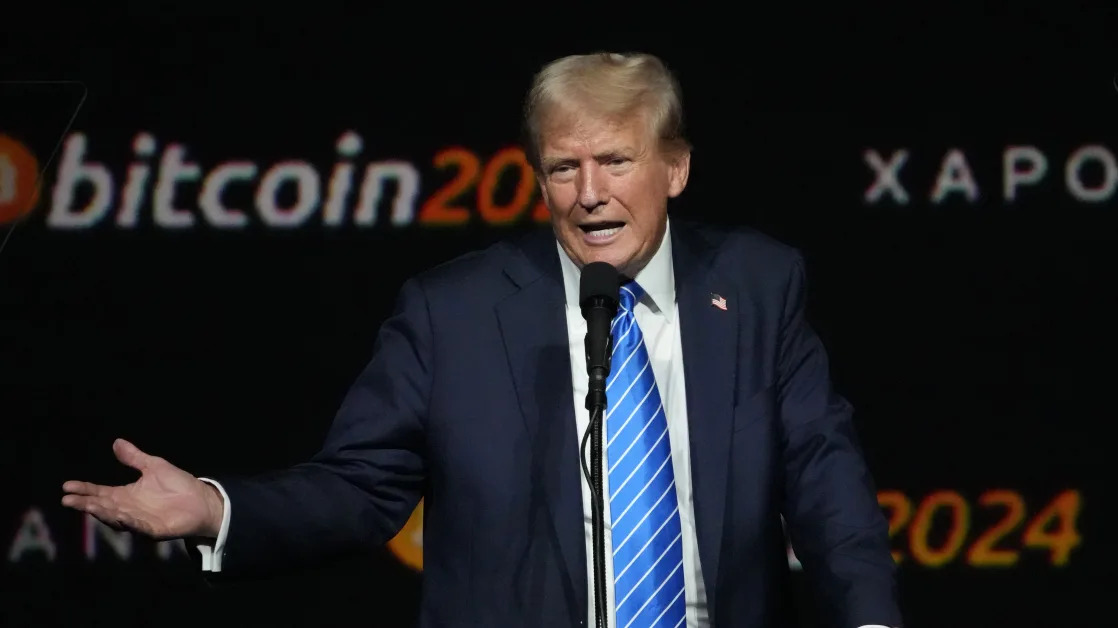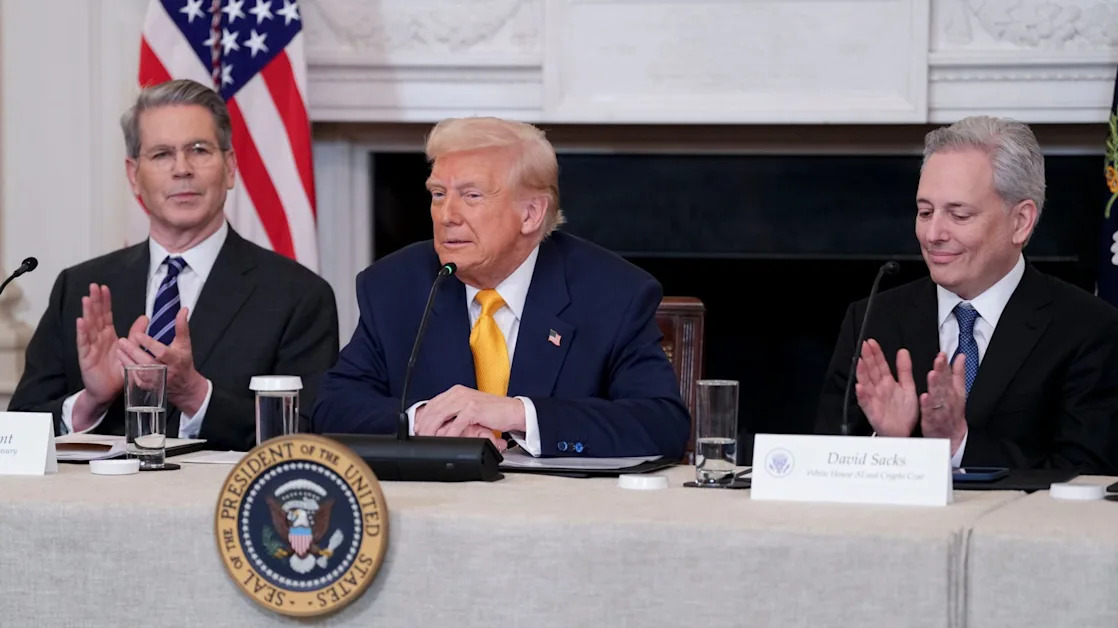Shares in major healthcare companies fell yesterday after president-elect Donald Trump made comments that he wanted to “knock out” prescription drug industry middlemen. The fall makes this yet another week since the killing of UnitedHealth CEO Brian Thompson that the business practices of companies that operate America’s private healthcare system have come under increased scrutiny .
Here’s what you need to know about Trump’s comments and how they have impacted the stock price of what are known as pharmacy benefit managers.
What did Trump say?
Speaking to reporters at his Mar-a-Lago country club in Palm Beach, Florida, on Monday, Trump described a dinner he and his Health and Human Services Department head nominee, Robert F. Kennedy Jr., had with leaders from Eli Lilly and Pfizer. He then went on to reference what are known as prescription drug middlemen, reports Bloomberg .
“We have a thing called the middleman,” Trump said. “You know the middleman, right? The horrible middleman that makes more money frankly than the drug companies, and they don’t do anything except they’re a middleman,” he said. “We’re going to knock out the middleman.”
After Trump’s comments, shares in companies that operate pharmacy benefit manager businesses, which are the prescription drug middlemen that Trump was referring to, sank:
What is a pharmacy benefit manager?
Pharmacy benefit managers (PBMs) are unique to the healthcare system in America. They are entities that work as middlemen between insurance companies and drug makers to negotiate the price of prescription drugs. PBMs also help build drug coverage lists for health insurance plans, according to Reuters.
UnitedHealth, Cigna, and CVS own three of the largest PBMs in the country.
However, there is a startling lack of transparency when it comes to how PBMs operate behind the scenes , notes the Center for American Progress (CAP). PBMs claim they help lower the cost of drugs, but this is often disputed. According to CAP, the two main practices that PBMs use to fatten their revenue can increase drug costs for both insurers and patients.
PBMs negotiate rebates from drug manufacturers, but CAP says PBMs may retain a part of these rebates for their own profits instead of passing the complete value of the discount to insurers. PBMs may also receive more money from an insurer for a prescription drug than the pharmacy is charging—and PBMs may pocket this difference, leading to higher drug costs overall, according to CAP.
Though PBMs argue that they help bring down drug prices, the fact of the matter is that Americans pay much more for prescription drugs than citizens of other countries. A 2024 report from the Department of Health and Human Services’s Assistant Secretary for Planning and Evaluation (ASPE) found that drug prices across all drugs (generic and name-brand) were nearly 2.78 times higher than in other compared countries. Even after adjustments for rebates, brand-name drug prices were “at least 3.22 times as high as prices in the comparison countries.”
The higher costs for prescription drugs in America versus other countries is something that Trump said he spent much of his dinner with Eli Lilly and Pfizer executives discussing, notes Reuters.
Why did Trump’s comments spook healthcare investors?
Historically, Republicans have been the most supportive of America’s private health insurance system and how it operates. However, Trump’s comments suggest that his administration may not be as friendly to all aspects of the healthcare industry.
And it’s not just Trump. Last week, Republican Senator Josh Hawley of Missouri teamed up with Democratic Senator Elizabeth Warren of Massachusetts to introduce a bill that would require health insurance companies to divest of their pharmacy benefit manager programs. Republican Representative Diana Harshbarger of Tennessee and Democratic Representative Jake Auchincloss of Massachusetts introduced a similar bill in the House.
Bills such as these—along with Trump’s comments—suggest that politicians on both sides of the aisle are increasingly becoming aware that Americans’ frustration with the country’s private health insurance industry is no longer limited to a left-right or progressive-conservative divide. It is something that voters across both political spectrums are fed up with.
This post originally appeared at
fastcompany.com
Subscribe to get the Fast Company newsletter:
http://fastcompany.com/newsletters





